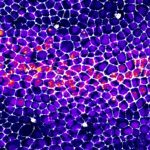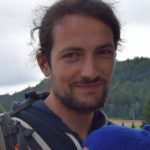Link to Pubmed [PMID] – 31077845
Link to DOI – S1044-579X(19)30015-X10.1016/j.semcancer.2019.05.004
Semin Cancer Biol 2020 06; 63(): 69-80
The regulation of cell growth, cell proliferation and cell death is at the basis of the homeostasis of tissues. While they can be regulated by intrinsic and genetic factors, their response to external signals emanating from the local environment is also essential for tissue homeostasis. Tumour initiation and progression is based on the misregulation of growth, proliferation and death mostly through the accumulation of genetic mutations. Yet, there is an increasing body of evidences showing that tumour microenvironment also has a strong impact on cancer initiation and progression. This includes the mechanical constrains and the compressive forces generated by the resistance of the surrounding tissue/matrix to tumour expansion. Recently, mechanical stress has been proposed to promote competitive interactions between cells through a process called mechanical cell competition. Cell population with a high proliferative rate can compact and eliminate the neighbouring cells which are more sensitive to compaction. While this emerging concept has been recently validated in vivo, the relevance of this process during tumour progression has never been discussed extensively. In this review, I will first describe the phenomenology of mechanical cell competition focusing on the main parameters and the pathways regulating cell elimination. I will then discuss the relevance of mechanical cell competition in tumour initiation and expansion while emphasizing its potential opposing contributions to tumourogenesis.


